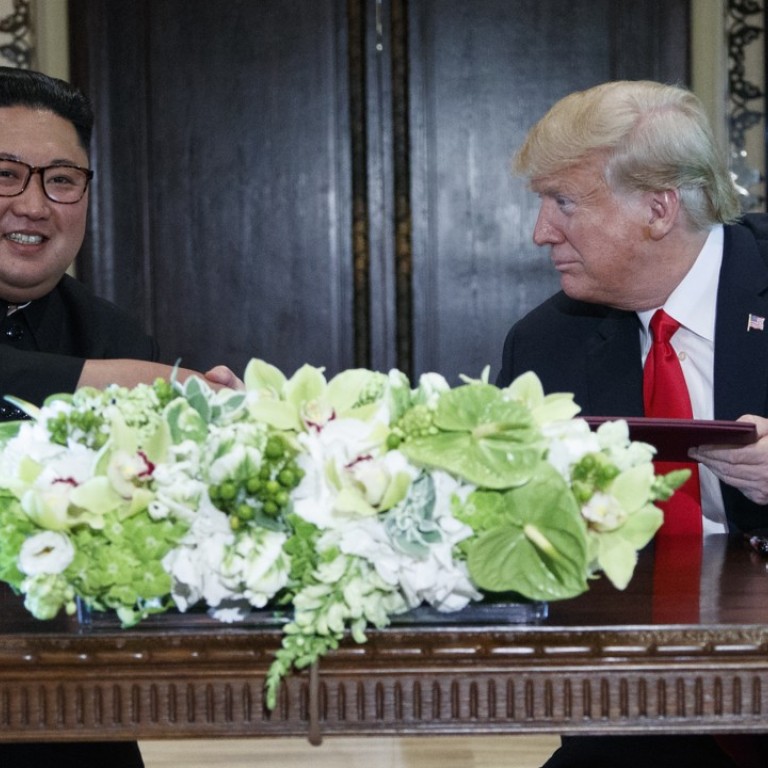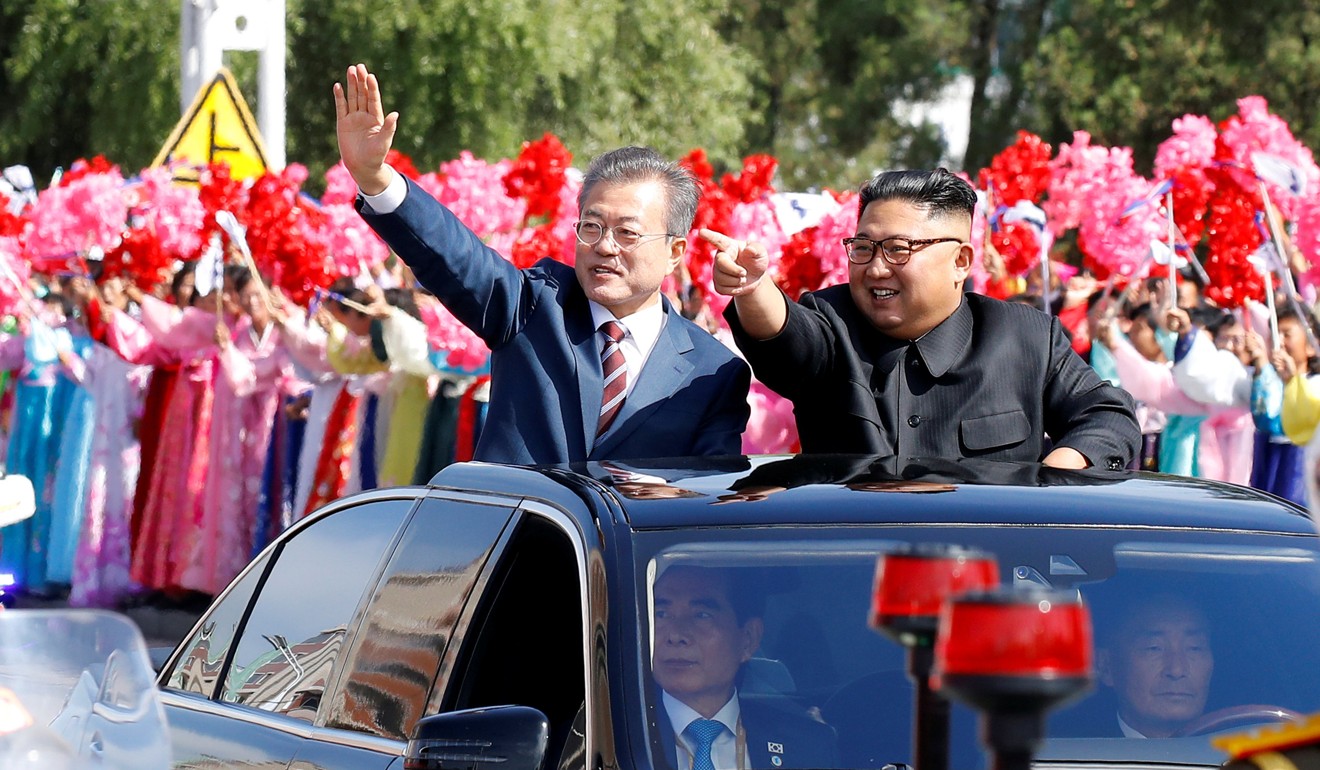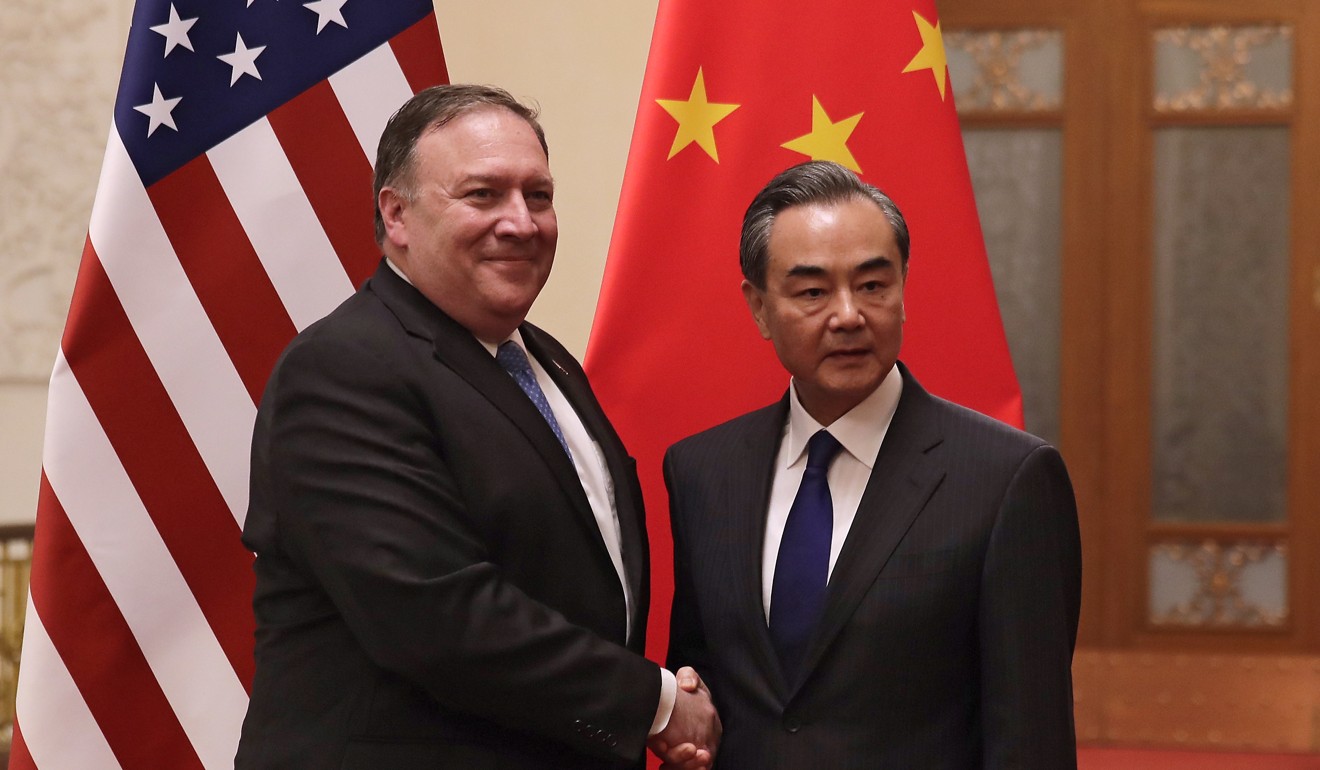
China on board with Japan, United States and South Korea on North’s denuclearisation, US State Department says
United Nations meeting next week on Pyongyang situation will be led by top US diplomat Mike Pompeo
China is on board with the United States, South Korea and Japan on North Korean denuclearisation, the US State Department said on Tuesday, despite US President Donald Trump accusing China of holding back the process.
“South Korea, China and Japan all stressed the common objective of denuclearisation and the path forward on achieving that objective,” Heather Nauert, a State Department spokeswoman, said at a press briefing about US special representative Stephen Biegun’s trip to Asia last week.
Biegun travelled to the three countries to discuss “the final, fully verified denuclearisation of North Korea as agreed to by Chairman Kim”, Nauert said, referring to Kim Jong-un. “On his trip, special representative Biegun emphasised the importance of continued coordination on denuclearisation pressure and also diplomacy.
“The trip allowed special representative Biegun to build strong rapport with his counterparts, which will pave the way for strong cooperation on our mutual and, truly, the world's objective of denuclearisation.”
She also said US Secretary of State Mike Pompeo would be chairman of a United Nations ministerial meeting on North Korea on September 27 during the 73rd session of the UN General Assembly in New York.
Chinese Foreign Minister Wang Yi would lead the Chinese delegation at the general debate session of the General Assembly, which is scheduled to begin on September 25, foreign ministry spokesman Geng Shuang said. It was not immediately clear whether Wang and Pompeo would meet in New York.
On Tuesday, Trump drew a connection between what he characterised as his restraint in imposing further tariffs on Chinese imports and China’s efforts to denuclearise North Korea during a joint press conference with the visiting Polish president, Andrzej Duda.
“We didn’t do anything with respect to China [earlier] because we wanted to have the benefit of China having to do with North Korea,” Trump said. “And they have been helpful. I hope they’re still helpful. There’s a question about that.”
On Monday, Trump moved ahead with a new round of tariffs on US$200 billion of Chinese goods.
The latest messages from the Trump administration came as Kim hosted South Korean President Moon Jae-in in Pyongyang for their third inter-Korean summit, which continues until Thursday.
On Wednesday, Moon and Kim are expected to make a joint statement and announce a separate military pact designed to defuse tensions and prevent armed clashes.
Kim thanked Moon for bringing about the “historic” Singapore meeting with Trump in June and said he expected further progress at an inter-Korean summit aimed at reviving stalled nuclear diplomacy.

“Thanks to that, the political situation in the region has stabilised and I expect more advanced results,” Kim said.
Before the trip, Trump had asked Moon in a phone conversation to serve as “chief negotiator” between the US and North Korea, Moon’s spokesman, Kim Eui-keum, said in early September.
“If North Korea-US dialogue is restarted after this visit, it would have much significance in itself,” Moon said before leaving for Pyongyang. Trump called off Pompeo’s planned trip to North Korea in late August.
Meanwhile, the official newspaper of the Central Committee of North Korea’s ruling Workers’ Party of Korea, Rodong Sinmun, said on Tuesday in an editorial that “the responsibility falls squarely on the United States” for the stalled nuclear talks.
“It is due to its nonsensical, irrational stubbornness that other issues can only be discussed after our country has completely verifiably, irreversibly dismantled our nuclear capabilities ... without showing the intention to build trust, including declaring the end of war,” the editorial said.
Officials in Seoul said Moon was hoping to engineer a proposal that combined a concrete framework for North Korea’s denuclearisation and a joint declaration ending the 1950-53 Korean war, which was halted with an armistice, not a peace treaty, technically leaving US-led United Nations forces, including South Korea, still at war with Pyongyang.
However, an end-of-war declaration, if made, could call the continued existence of the US forces in South Korea into question. About 28,000 US troops are stationed in South Korea, which is an ally under a mutual defence treaty that dates from the 1950s.

Trump had reportedly ordered the Pentagon to prepare options for drawing down American troops in South Korea weeks before his June meeting with Kim in Singapore, The New York Times reported in early May, citing several people briefed on the deliberations.
However, after the Trump-Kim summit, US Defence Secretary James Mattis assured South Korea of an “ironclad” commitment to its security, including keeping US troop levels unaltered, according to a Reuters report in late June.
Mark Fitzpatrick, who leads the non-proliferation and nuclear policy programme at the International Institute for Strategic Studies, said that a formal declaration ending of war did not mean US forces would leave, or that the US-South Korea alliance would change.
“In my personal view, it is a card the US could play in exchange for some positive step by North Korea,” Fitzpatrick said. “The best quid pro quo would be a step toward denuclearisation.”
Fitzpatrick wrote in a blog post: “The US has already been pursuing an exchange with North Korea – a declaration to end the war in return for a North Korean declaration of its nuclear and missile holdings – but the two sides cannot agree on sequencing.”
Harry Kazianis, director of defence studies at the Washington-based Centre for the National Interest, said he believed North Korea would hand over a list of its nuclear weapons and missiles in exchange for a declaration ending the war.
Kazianis emphasised, however, that there were two vital components: first, North Korea would not be required to provide details about the location of the missiles and warheads; and second, this declaration-for-declaration deal must be done simultaneously with Kim’s handing over of his nuclear weapons list. “So this way no side loses face,” he said.
Additional reporting by Reuters

